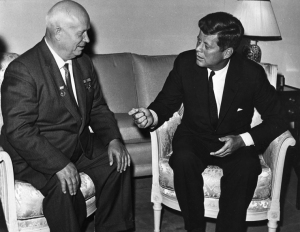In the spring of 1993 I attended a conference on journalism and technology at Columbia University. It was a time when the digital culture that was to emerge was right on the brink: the Internet was not nearly as much of a force in the lives of ordinary people as were commercial services like Prodigy, and Mosaic, the first graphical Web browser, had just been released. With The Boston Globe just having run an image of the story I wrote for The Boston Phoenix after that conference, I thought I’d reproduce it here in full.
Future Watch: Lost in space
Why the electronic village may be a very lonely place
Copyright © 1993 by the Phoenix Media/Communications Group. All rights reserved.
May 7, 1993: From 500-channel interactive TV to portable electronic newspapers, an unprecedented explosion of information technology awaits us in the next several years. These services, media analysts say, will allow you to tailor news programming to your own interests, do your banking and shopping at home, and make restaurant reservations with a hand-held computer while you’re sitting at a bus stop.
Certainly the speakers were bullish at this past week’s conference on “Newsroom Technology: The Next Generation,” sponsored by the Freedom Forum Media Studies Center, at Columbia University, in New York. Expert after expert talked in rapturous tones about the “information highway,” fiber optics, coaxial cable, digital compression, and the like.
But there’s a dark side to the emerging electronic village, acknowledged almost as an afterthought amid the glowing financial projections and the futuristic technobabble. And that dark side is this: as information becomes increasingly decentralized, there’s a danger that consumers of that information — all of us, in other words — will become more and more isolated from society and from each other.
What’s being lost is the sense of shared cultural experience — the nationwide community that gathered to watch, say, the Vietnam War, in the 1960s, or the Watergate hearings, in the 1970s. Media analyst Les Brown, a former television reporter for the New York Times, believes that for all their “insufferable arrogance” during that era, the Big Three networks “served the needs of democracy very well.” With 500 channels, he fears, users will choose news programming that suits their political biases — if they choose any news programming at all.
“Whatever happened to everybody talking to each other?” he asked during the Freedom Forum gathering. “What happened to this big tent we used to have? As the media become more democratized, they may serve the needs of democracy less well.” Continue reading “Flashback: The state of digital culture in 1993”


